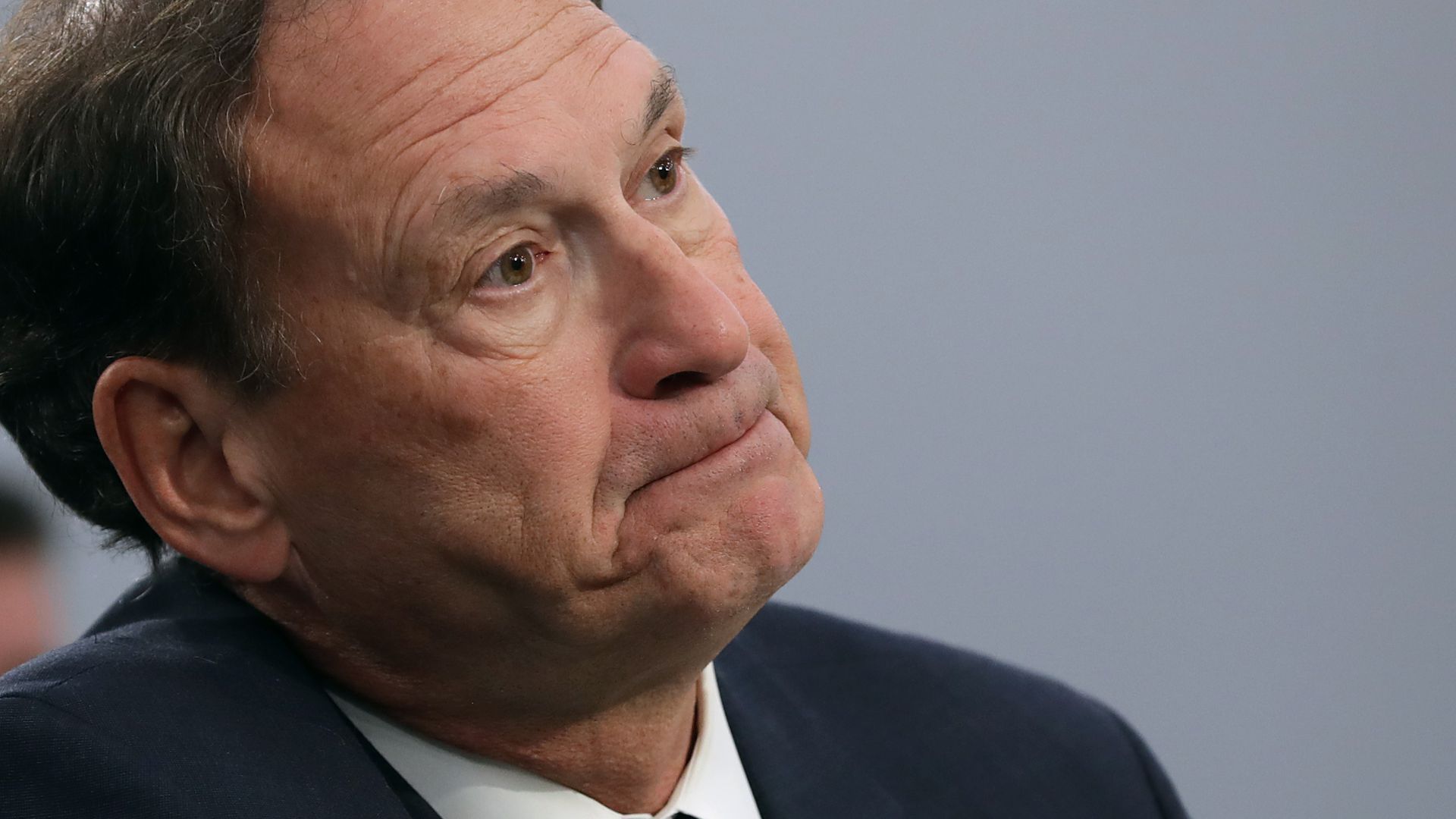Alito criticizes state and local coronavirus restrictions
Add Axios as your preferred source to
see more of our stories on Google.

Alito testifying before Congress in 2019. Photo: Chip Somodevilla/Getty Images
Supreme Court Justice Samuel Alito last night criticized some of the restrictions state and local leaders have imposed during the pandemic, saying they may violate the First Amendment and casting them as part of a long, dark turn toward lawmaking through "executive fiat."
What he's saying: "Think of all the live events that would otherwise be protected by the freedom of speech ... think of worship services ... think about access to the courts or access to a speedy trial," Alito said in a speech to the conservative Federalist Society.
Why it matters: The Supreme Court has already been asked to hear challenges to some COVID-19 measures, and may well be asked to hear more.
- Alito said he was not weighing in on the public health merits of these policies or passing judgment on specific rules.
- His speech, however, was about pervasive threats to constitutional liberties, and he brought up coronavirus restrictions repeatedly in that context.
- "The COVID crisis has served as a sort of constitutional stress test, and in doing so it has highlighted disturbing trends that were already present before the virus struck," Alito said.
Among those disturbing trends, he said, is the exercise of broad authority "by executive officials who are thought to implement policies based on expertise — and in the purest form, scientific expertise."
- Alito singled out rules in Nevada that allowed casinos to open at 50% of their normal capacity, while limiting houses of worship to 50 total people, no matter how big their building is or what precautions they have in place.
- Those restrictions, and similar regulations in California, were appealed to the Supreme Court, which deferred to local authorities. But those policies "blatantly discriminated" against religious exercise, Alito said, and "should not have been a very tough call."
